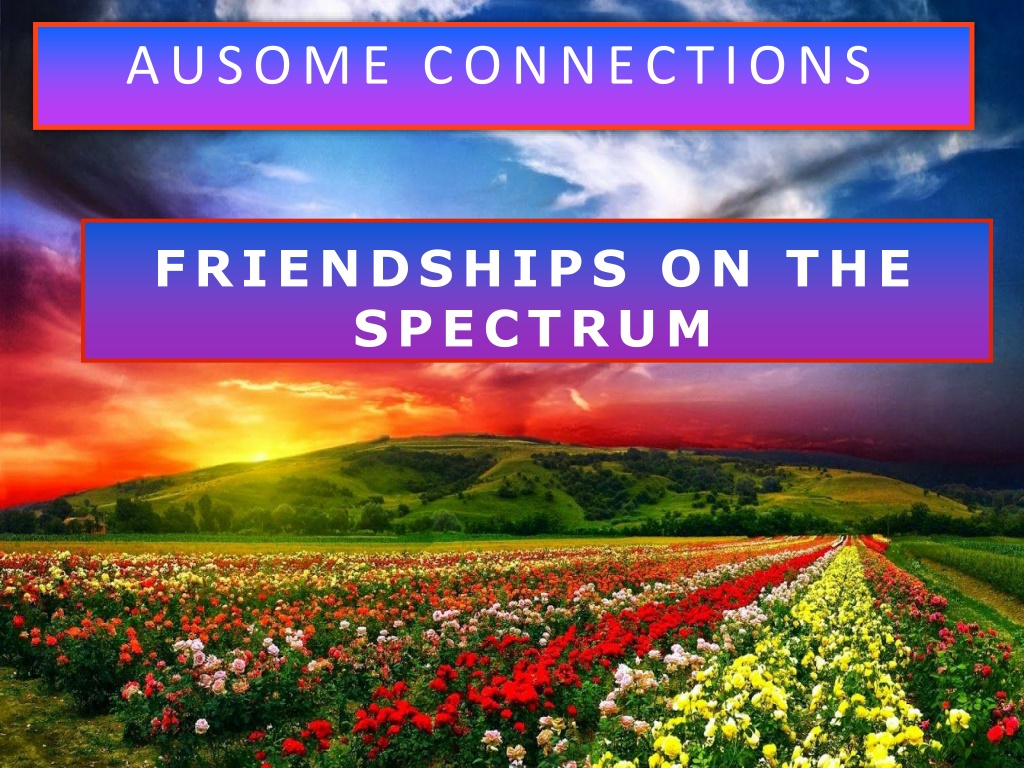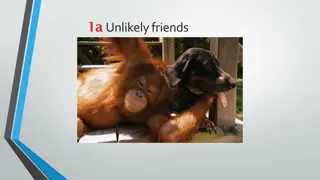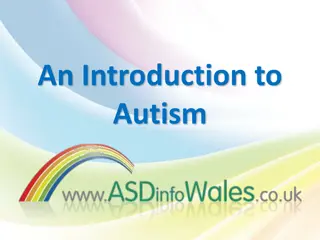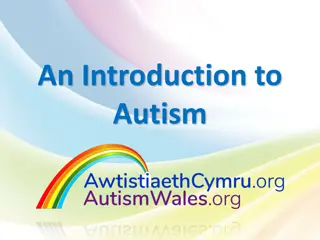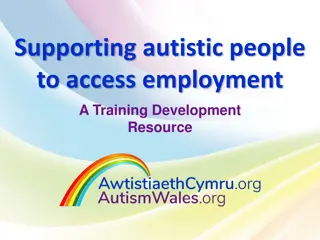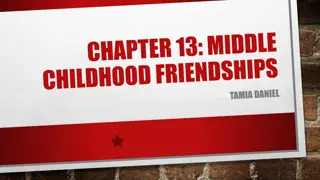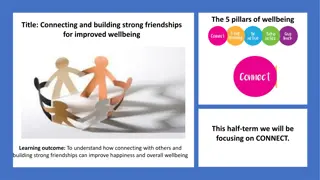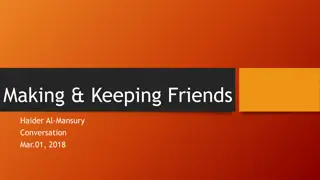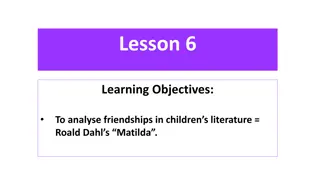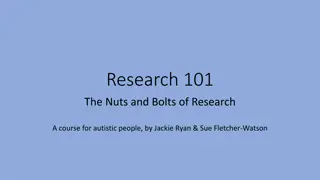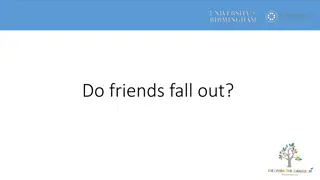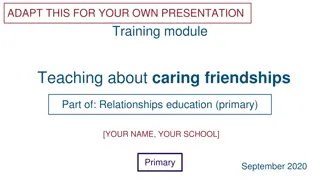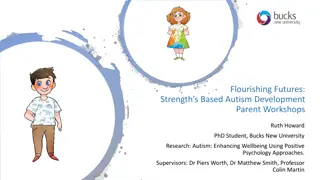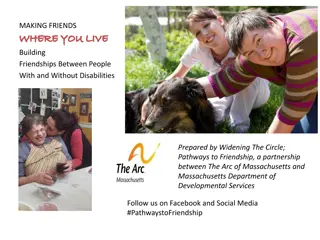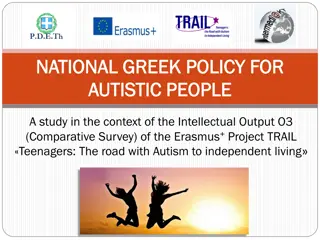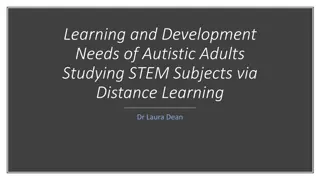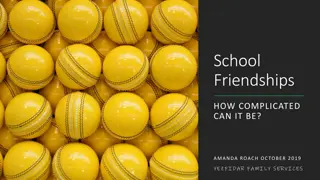Understanding Autistic Friendships and Social Success
Exploring the unique aspects of friendships on the autism spectrum, the qualities of autistic friends, differences in social interactions, and the paths to social success and happiness for both neurotypical and autistic individuals. Emphasizing the appreciation for authenticity, meaningful connections, and individual strengths in the social landscape.
Download Presentation

Please find below an Image/Link to download the presentation.
The content on the website is provided AS IS for your information and personal use only. It may not be sold, licensed, or shared on other websites without obtaining consent from the author. Download presentation by click this link. If you encounter any issues during the download, it is possible that the publisher has removed the file from their server.
E N D
Presentation Transcript
AUSOME CONNECTIONS FRIENDSHIPS ON THE SPECTRUM
AUTISTIC FRIENDS: Loyal Genuine Unpretentious Honest Direct Appreciate you for who you are
FRIENDSHIPS & AUTISM Usually lower social drive have a few well-chosen friends Words less important than actions Sharing space & time Conversations tend to be meaningful
AUTISM IS A SOCIAL & COMMUNICATION DISABILITY People want to feel socially competent Therefore, because Autistic people tend to be socially out of synch, it s usually confident people who are comfortable being in our chosen circles.
NEUROTYPICAL ROUTE TO SOCIAL SUCCESS AND HAPPINESS: Fit in, genetic, conform = social acceptance & safety Initiate social interactions, reach out NT end result: larger circle, more socializing, more outings in community
AUTISTIC ROUTE TO SOCIAL SUCCESS AND HAPPINESS Be ourselves Enjoy our passions Choose our circle wisely- those who perceive & appreciate our strengths Natural Autistic engagement style is to share space & time, not so much eye contact, smalltalk, etc. Autistic end result: Be appreciated for who we are. Sense of belonging, connections through our passions, easier, streamlined social schedule.
Social rules are never intuitive for Autistic people, and we all prefer to do what we re good at. Social Energy drain Full-body migraine as our social batteries lower, being drained is physically painful. Expect judgement & rejection for not being able to intuit social rules Anticipate pressure to socialize (groups, clubs, scouts) Our authentic Autistic style of social engagement isn t recognized for the warmth of connection/ emotional reciprocity it is.
PLEASE REMEMBER... Initiating social interaction may look different, may be something the person s neurology isn t wired for, or may take time for to become comfortable with someone. Be patient. We want genuine friends, not to have assigned friends. Having another person plan social goals for you feels: inappropriate, presumptive, invasive, oogey. Support natural Autistic engagement styles Teach manners we all need to learn to be polite Become comfortable yourself with the real degree of social drive the person actually has
HOW TO SUPPORT AUTISTIC PEOPLE FOR SOCIAL SUCCESS & HAPPINESS
POSITIVE AUTISTIC SELF-CONCEPT FOR SOCIAL ENGAGEMENT
TO WANT TO SOCIALIZE, WE NEED A POSITIVE SELF-IMAGE INCLUDING OUR AUTISM .
AUTISM IS AN IDENTITY BEFORE IT S A DIAGNOSIS
KEEP THE MIND FRESH & INCREASE SOCIAL DRIVE
Autistic people must budget our social energy Friends who get us recognize our Autistic style of connecting, even though it looks different. We decide how much social engagement we can handle
BUFFERS OF SOLITUDE
RESPECT OUR DIFFERENCES IN ENGAGEMENT STYLES FRIENDSHIPS COME IN ALL FLAVORS
NON-COMPLIANCE (SETTING HEALTHY BOUNDARIES) IS A SOCIAL SKILL WHICH MUST BE TAUGHT FOR OUR SOCIAL SAFETY & INTERNAL WELLBEING
